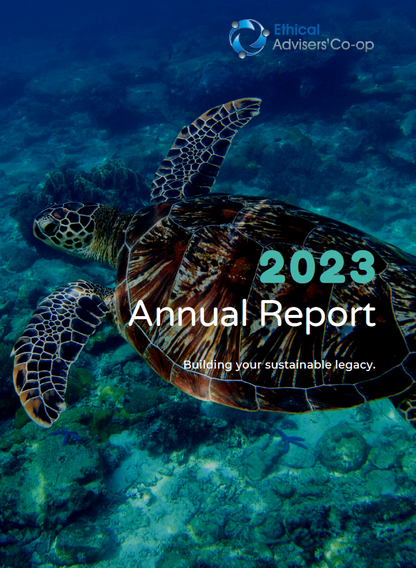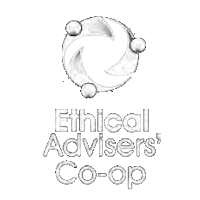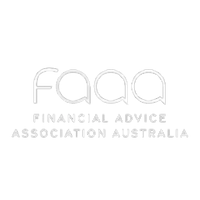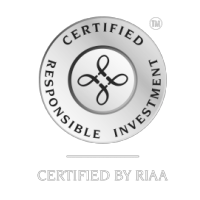In this issue
Think modern slavery doesn’t happen in Australia?
Australia Launches Sustainable Finance Taxonomy
EXPOSED: Macquarie, Australia’s fracking bank
Shareholder update on Macquarie Group’s 2025 AGM
Help Your Parents Stay Independent: Why Every Senior Needs a Photo ID
US Companies Recalibrate ESG Strategies Amid Policy Shifts
New Aged Care Act Deferred
Telstra Scam Targeting Customers
 The Green Dream
The Green Dream
Hidden in Plain Sight: The Unseen Cost of Modern Slavery with Måns Carlsson & Moe Turaga
I was blown away to hear Moe Turaga’s story at a recent conference. Most of the time we think of Modern Slavery as a distant problem – something that happens in other countries. So how do we react when we find out that it’s happening right here in Australia, often in plain sight. Moe Turaga bravely shared his first-hand experience of being exploited under slavery conditions. What are we missing here? Which products on the shelves of supermarkets and retail stores have been put there by exploiting workers?
In this interview, EIA Adviser James Baird is joined by Måns Carlsson, Head of ESG at Ausbil Investment Management, to understand the role of companies, consumers and investors in confronting this crisis facing an estimated 50 million people worldwide. Måns is a recognised leader in Modern Slavery and worker exploitation, with a long standing commitment to addressing human rights risks across portfolios. So much so that he was awarded the Order of Australia Medal in 2022 for his contribution to the sustainable investment industry.
 Australia Launches Sustainable Finance Taxonomy
Australia Launches Sustainable Finance Taxonomy
In June 2025, the Australian Sustainable Finance Institute (ASFI) released the country’s first sustainable finance taxonomy, providing a framework to identify economic activities that support climate and sustainability objectives.
The Australian taxonomy is available for voluntary use. It supports the credible allocation of capital towards Paris-aligned activities by:
- Strengthening investor confidence in low-emissions investment claims
- Reducing the risk of greenwashing
- Improving the comparability of investment products and sustainability disclosures
Why does Australia need its own taxonomy?
The Australian taxonomy builds and expands on the EU taxonomy’s approach while covering key sectors including green mining, metals and minerals and agriculture and has an explicit focus on credible transition activities. It is also the first taxonomy in the world to set expectations for engagement with First Nations peoples and the management of cultural heritage.
ASFI
 Macquarie’s Climate Contradiction
Macquarie’s Climate Contradiction
As a client, you may have an account with Macquarie or hold shares in the company, and as a shareholder your voice carries weight.
Macquarie claims to support the Paris Agreement and a net-zero future. Yet it continues to fund companies behind the Beetaloo Basin gas fracking project—one of Australia’s most environmentally destructive fossil fuel expansions. This project threatens to unleash over 1.1 billion tonnes of CO₂-equivalent emissions, undermining global climate goals and Macquarie’s own sustainability commitments.
As a customer or shareholder, you have the power to demand accountability.
Market Forces has launched a petition urging Macquarie to cut ties with Empire Energy, Tamboran Resources, and other companies driving this climate disaster. The petition also calls on Macquarie to align its financing practices with its public climate commitments.
You can sign the petition Here
 Shareholder Update on Macquarie Group’s 2025 Annual General Meeting
Shareholder Update on Macquarie Group’s 2025 Annual General Meeting
As a shareholder in the Macquarie Group, you play a vital role in shaping the company’s direction and governance. The 2025 AGM, delivered some noteworthy outcomes that reflect growing shareholder influence and evolving priorities.
Remuneration Report Rejected – First Strike for the Board
For the first time ever, Macquarie’s remuneration report was rejected by shareholders, triggering a “first strike” under Australia’s corporate governance rules. If the remuneration report is rejected two more time thereafter, it could lead to a board spill, where directors may be forced to stand for re-election.
This outcome reflects growing shareholder scrutiny over executive pay.
Environmental Resolutions Gain Momentum
While the Market Forces climate-related resolutions did not pass, they garnered notable media attention and shareholder engagement. These resolutions aimed to enhance transparency around climate risk exposure and management.
Importantly, several large institutional investors supported these resolutions, including:
New York City pension funds
Church of England (UK)
Norway’s largest private pension fund
ELM Responsible Investments (Melbourne)
Australian Ethical
Their backing signals a growing demand for environmental accountability and sustainability reporting from major financial institutions.
source: MichaelWest
 Help Your Parents Stay Independent: Why Every Senior Needs a Photo ID
Help Your Parents Stay Independent: Why Every Senior Needs a Photo ID
In a world where digital and physical identification are essential for everyday tasks, many elderly Australians are quietly slipping through the cracks. Without a valid photo ID, simple things—like banking, booking appointments, or verifying identity—become unnecessarily difficult and isolating.
As financial advisers, we often see families caught off guard by how hard it can be to support ageing parents with their finances or legal affairs—simply because
Mum or Dad doesn’t have a current form of identification.
A recent opinion piece I read in IFA highlights this often-overlooked issue. As the article puts it: “A lack of photo ID for elderly Australians is fast becoming a social and financial crisis.”
The problem? Many seniors give up their driver’s licence without realising it’s often their only official photo ID. Unlike younger generations, they’re less likely to have passports, and few are aware of alternative options like state-issued photo cards. Without a valid ID, they may face roadblocks when trying to access services, even with the help of family or a financial professional.
It’s not just an inconvenience—it’s a loss of autonomy.
How You Can Help
If your parent no longer drives, encourage them to apply for a State-based proof of ID. Every state offers these cards as a simple, affordable way for non-drivers to prove who they are.
Helping your parents secure one now can save time, stress, and potentially money down the road. It also empowers them to maintain control over their affairs—something they value deeply.
Let’s make sure their identity—and independence—is protected.
 New Aged Care Act deferred until 1 November 2025
New Aged Care Act deferred until 1 November 2025
The Government has conceded that more time is needed to allow Government systems and aged care providers to be ready for the massive changes arising from the New Aged Care Act.
Therefore, the start date for the Act and reforms is now set for 1 November 2025, instead of 1 July 2025. What does this mean for you, or your loved one? Get in touch with us to find out.
While these changes aim to create a more sustainable and fairer system, they do bring added complexity — especially when it comes to understanding the fees and making the right financial decisions.
Here are the five key things you need to know:
1. Aged care will cost more – but is still subsidised
If you or a loved one is moving into residential aged care after 1 November 2025, the amount you’ll need to contribute will be higher. That said, the Government will continue to fund a large share of care costs – around 73% on average. But it will be important to consider your cashflow.
2. Expect new terminology and fee calculations
The language is changing. Instead of the current “means-tested care fee,” you’ll now see new names like Hotelling Contribution and Non-Clinical Care Contribution. How much you are asked to pay will still be based on your income and assets, but new formulae may result in higher contributions than under the current rules.
3. Lifetime caps remain – but at a higher level
A lifetime cap will continue to apply to limit how much you can be asked to pay as a non-clinical care contribution over your total stay in residential care. This cap is increasing to $130,000, but with a new safeguard, that no matter how much you pay, you will only need to pay this fee for a maximum of four years. This helps ensure fairness between residents with different levels of wealth.
4. Retention amounts are being reintroduced
If you choose to pay a lump sum for your room (known as a refundable accommodation deposit – RAD), aged care providers will deduct a “retention amount” of up to 2% per year (capped at 10% over five years). While this increases the cost slightly, it may still be better value than paying the daily accommodation payment.
5. Good advice can prevent costly mistakes
Navigating these new rules can be confusing – especially when you need to make major decisions about the family home, assets or pension entitlements. The cost of getting good advice is often small compared to the cost of getting it wrong. That’s why seeking qualified aged care financial advice is more important than ever.
If you’re starting to think about aged care for yourself or a family member, now is the time to start planning and seek advice. As specialists in aged care advice, we can help you to make informed decisions with confidence and peace of mind. Contact us today.
MPORTANT INFORMATION: The information contained in this publication is based on the understanding Ethical Investment Advisers Pty Ltd ABN 26 108 175 819 AFSL 276544 has of the relevant Australian legislation. While every care has been taken, Ethical Investment Advisers Pty Ltd makes no representations as to the accuracy or completeness of the contents. The information is of a general nature only and has been prepared without consideration of your individual objectives, financial situation or needs. Before making any decisions, you should consider the appropriateness for your personal investment objectives, financial situation, or individual needs. We recommend you see a financial adviser, registered tax agent or legal adviser before making any decisions based on this information.
 Telstra Scam Targeting Customers
Telstra Scam Targeting Customers
We’ve been made aware of a new scam targeting Telstra customers. Fraudsters are sending emails and texts pretending to be from Telstra, urging recipients to confirm that they agreed to the new Telstra admin changes at Noreply@Telstra.com
This is a fraud and we recommend you send it directly to Spam if you receive it. This has been confirmed by Telstra Fraud Department.
If you are unsure about a message, do not click on it.
The contents of this newsletter are intended as general advice only. No specific person’s circumstances, financial situation or objectives have been taken into consideration. You should not act on the information provided without seeking personal advice from an appropriately qualified financial planner. Research sources: CAER Corporate Monitor. While the source has been verified as reliable, the actual content has not been checked for accuracy. Consequently Ethical Investment Advisers does not warrant the accuracy of the information nor accept liability for any errors in the data.







